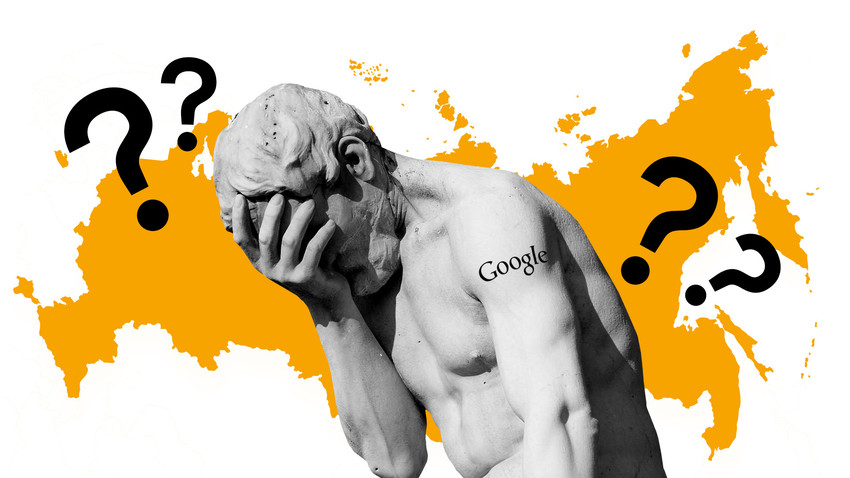10 most ridiculous questions people ask about Russia

Have you noticed how much international attention Russia has received over the last few years? It seems that not a day goes by without some major Western newspaper running some Russia-related story - perhaps on yet another TV series on Russia or on the latest secret Russian attempt to outdo the West (like FaceApp).
And yet, just when you start thinking that enough has been said about the country and there is pretty much nothing left say, you stumble upon some weird and baffling questions foreigners ask about Russia online…
(We didn’t invent the following: All of them are real questions asked on Quora or via Google)
1. Who is the current president of Russia?
Ok, let’s start with a small hint: he is a man, his first name starts with a “V” and his fans love his photo on a horse… Doesn’t ring any bells? We understand that the Russian leader doesn’t have as much social media presence as the U.S. President, for example, but many people still consider him “the best president ever” and even do tattoos with him. Still have no clue?
2. Is Russia a continent?
Hmm, a tough one indeed. Russia is the largest country on Earth and it really might be easier to think of it as a continent. After all, continents are a social construct and there is no unity on the continent Russia occupies - some say there is one continent of “Eurasia” while others separate it as Asia and Europe. Plus, there is no agreement on whether Russia is Europe or Asia so, to be safe, think of it as Eurasia. You’re welcome.
3. Can Russians watch Western TV shows?
Well, yes, we do - otherwise, how could we find out what others think about us? It’s a shame that Americans don’t watch Russian TV shows. They are putting themselves at a disadvantage in the current information war. Good for Russia, of course.
4. Does Russia want to destroy the U.S.?
Why else do you think many Russians dream about moving to America? To destroy it from the inside - spreading chaos and Russian language with it.
5. Is Russia a communist or a socialist country?
The memories of the great and ambitious Soviet past are still haunting Russia but (sorry to upset you) the fall of the USSR brought with it democracy. Whether there is still debate on how democratic Russia is, one thing is clear - no communism or socialism for us, mate!
6. Why did Russia join the Allies in WW2?
Just imagine where Russia would be if it hadn’t - one needs allies to survive and the enemies of Germany were friends by definition. It could have been a whole other story, if only Adolf Hitler didn’t plan mass murder, enslavement and economic exploitation for the Soviet Union like the rest of the world...
7. Isn't Ukraine (Belarus, Moldova) a part of Russia?
These are independent countries and they’ll be deeply offended if you ask them about it. And no, Russia doesn’t plan to invade them (as far as we know).
8. Does Russia have summer?
No, not at all. If you get lucky, you might even find proof of that - some Russians witness snow in what Russians call “summer”. It happens every now and then but no one can predict where exactly. So, don’t mind all those people who complain about the heat in Moscow or St. Petersburg and flock to their dachasor the Black Sea resorts from June to August.
9. What on earth is wrong with Russia?
Who knows. We certainly don’t because we are Russians! And we are mad, aren’t we?
10. Why does Russia get the blame for everything?
First, because someone has to, right? And, second, as we all know, Russia has a long tradition of suffering and we simply learned how to benefit from it. As experts know, complaining, never-ending excruciating self-analysis and love for depressing fiction is actually our secret weapon to rescue us from real suffering, so why not put all the blame on those weird Russians if they know how to deal with it?
If using any of Russia Beyond's content, partly or in full, always provide an active hyperlink to the original material.
Subscribe
to our newsletter!
Get the week's best stories straight to your inbox